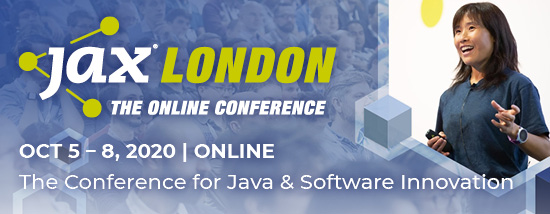A research study by The National Center for Women & Information Technology showed that “gender diversity has specific benefits in technology settings,” which could explain why tech companies have started to invest in initiatives that aim to boost the number of female applicants, recruit them in a more effective way, retain them for longer, and give them the opportunity to advance. But is it enough?
Three years ago, we launched a diversity series aimed at bringing the most inspirational and powerful women in the tech scene to your attention. Today, we’d like you to meet Jen Albertson, Senior Manager, Software Engineering at Red Hat.
Today’s Woman in Tech: Jen Albertson, Senior Manager, Software Engineering at Red Hat
When did you become interested in technology?
I was interested in science from a young age, and developed a love of computers when my mum brought home an IBM personal computer for us to use. I took all the computer science classes that my school offered and used to enjoy writing games on the Mac in our school’s library.
How did you end up in your career path?
As mentioned, I loved science – most specifically geology. I took a 4-H course in geology when I was 10 and I was hooked. So I went to school to study geology but it wasn’t until I took a computer science course that I realised I had a second passion. This was also right at the time when the internet was exploding, so I spent a lot of time dabbling with HTML, CSS and JavaScript. I also had the opportunity to build websites for departments at my university as well as local businesses before I graduated.
I was often the only woman in my classes, both in high school and in college. I don’t remember being concerned, mostly because I was so consumed by what I was studying. At the beginning of my career I often enjoyed being the only female engineer and, because I hadn’t had much experience with other women in my classes, it seemed normal. But there were also times when I had to listen to men talking about women in a very stereotypical fashion during meetings, even while I was in the room – on those occasions, it was as if I wasn’t considered part of the group of engineers.
When I moved into management that became even more difficult. There were very few women in leadership positions that I could look to and very few in mentorship positions. I struggled for a few years trying to reconcile my style of management with the style of many of my male counterparts, really questioning if I was doing it all wrong. Luckily I started working with some great mentors that encouraged me to trust myself and celebrate my style of leadership, which focuses on people over process.
Did you receive support from your family and friends? Do you have a role model?
I received a lot of support from my parents. They were both scientists and one of our favourite family activities was to discuss science or maths over dinner. My parents always encouraged me to explore different interests (from science to art through to music and sports) and anything that I wanted to do or explore, they supported. Although there were very few women in my classes in high school or college, I also found that I received a lot of support from my male classmates – I was never made to feel like an outsider.
For most of my life, my mum has probably been my greatest role model. She taught me how to have balance in life. She did crafts with us, taught us to cook, helped us mow the lawn, taught at university, and worked as a researcher. By being such a good multi-tasker, she showed me how to have a career and a family, and I learnt from her how to prioritise.
Did someone ever try to stop you from learning and advancing in your professional life?
I don’t feel that anyone ever actively tried to stop me from learning or advancing in my career. Though there have definitely been times when I didn’t get as much support as I would have liked. Now when I look back, I can see those were the times where I had to work harder to prove that I was in the right place (to myself as much as anyone else). During those times, I was also lucky to have mentors that encouraged me to step outside my comfort zone and go after what I wanted.
I received a lot of support from my parents. They were both scientists and one of our favourite family activities was to discuss science or maths over dinner.
A day in Jen’s life
I’m currently working for Red Hat as a Senior Manager of Engineering. I love managing engineering teams – especially the creativity involved, the connection I feel to the team, and the excitement from sharing updates with the customer. I am very passionate about building ‘empowered’ teams – and I’m not using that as a buzzword. ‘Empowered’ teams for me refer to teams that manage themselves, know their strengths and weaknesses and work together to solve problems; teams that know when to reach out for help and create a sense of inclusivity so everyone feels safe to offer their thoughts, feedback, and solutions.
My day generally consists of a lot of meetings! My favourite meetings are the one-to-ones I do with my associates. I enjoy learning more about them, their goals, their frustrations, their passions and how I can help them grow. I also enjoy connecting with our partner organisations – understanding what their challenges are and where we can share knowledge and experience. Generally, I like digging into problems and collaborating with others to find solutions – whether it’s for the benefit of our associates, our organisation as a whole, or our customers.
What are you most proud of in your career?
Two things come to mind that I’m most proud of. The first is having my two sons see me graduate from college. I went back to school in my late twenties to get my degree in geology and computer science and, as a single mother, it was challenging to balance kids, school and work. I was lucky to have help from parents and friends, but it really proved to me that I could accomplish the goals I set for myself. I loved that my boys could witness my success and learn from it that they can achieve their dreams too.
The second is helping to start ChickTech Raleigh-Durham, a local non-profit group that focused on encouraging high school girls to explore and pursue an interest in technology. In less than one year, myself and a team of really talented volunteers took the initiative from just an idea to become a fully-functioning program. That same year we hosted a weekend technology program at Meredith College for approx. 75 young women, where they got to participate in classes on robotics, 3-D printing, programming, video production, and wearable technology. It required a huge amount of work but I learned so much in the process and really pushed myself out of my comfort zone. It was incredibly rewarding to see the excitement on the attendees’ faces as they showcased what they’d worked on at the end of the weekend.
Why aren’t there more women in tech?
I often see young girls who are very interested in technology. For example, my oldest granddaughter (aged 5) is interested in becoming an astronaut, marine biologist, geologist, and computer programmer when she grows up! It’s important that parents, teachers, and role models nurture that curiosity and encourage it. Having parents who believed I could be whatever I wanted and gave me the courage to take all the science classes I was interested in, and having teachers who supported my interest and shared their passion for the subject reinforced that.
It’s important that there are plenty of programs, classes, and activities that offer the right settings for girls to feel comfortable exploring their interests. They need to see both men and women in leadership positions, reinforcing the idea that technology is open to all and benefits from different perspectives. We also need to celebrate female role models more and make sure young girls are aware of their stories.
Could you name a few challenges (or obstacles) women in tech face?
Seeing someone who looks like you at a senior technical or management level can be inspiring. Not seeing female leadership can be demoralising and unfortunately, women are still very underrepresented in senior roles. Some of this may be due to women leaving the workforce prematurely to start a family. It may also be due to a societal notion that the characteristics we often associate with leadership are more male-dominated.
While women might be more likely to take breaks in their career, this shouldn’t have to disrupt their progression. Managers should look for ways to support their employees during these times and provide opportunities and flexible working arrangements so it’s easy for women to return to the workplace. The pandemic has taught us that personal and professional lives can coexist, but it does require flexibility and support from companies.
It’s important for women in leadership positions to support other women as they develop their career, and sponsors and mentors can be a great help in this respect. Women should be looking for male allies that can act as mentors and sponsors.
The pandemic has taught us that personal and professional lives can coexist, but it does require flexibility and support from companies.
Would our world be different if more women worked in STEM?
I look forward to seeing how our world changes as more women move into STEM roles. I believe that having more opinions and greater diversity of ideas will transform how we work, what we produce, and how we interact. Young people will have more role models available who will open their minds to the possibilities for their future. Within my teams at Red Hat, I have witnessed the benefit of having a diverse set of voices at the table – there is more discussion, more conversation about what to do and how to do it; the team thinks more deeply and broadly.
One of the biggest benefits I believe we would see if more women worked in STEM is that we would stop using gender-based characteristics to define good leaders and start focusing on the unique potential each person brings. This would allow people to show up with their individual strengths instead of being pushed into a particular mould.
The discussion about diversity is gaining momentum. How long will it take to see results from the current debate?
I don’t know how long it will take to see results from the discussions about diversity. I do know that having the discussions is important. Red Hat has taken time this year to have really open discussions about diversity and how the lack of diversity affects our associates. Listening is the key to making our organisations more diverse. Listening provides the opportunity to learn more about the way others experience work and life.
Red Hat is a global company and I’m lucky to work with teams that span different countries and embrace a variety of cultures, ethnicities and gender, meaning they are able to be more creative and innovative. The cultural differences mean not everyone approaches work/life balance, career development and communication styles in the same way. As a result, associates are broadening their own perspectives and finding opportunities to share their unique perspectives.
What advice (and tips) would you give to women who want a tech career? What should they know about this industry?
Things move fast in technology and computer science – it’s a very exciting industry to be a part of. You never stop learning. You can dig deep and specialise in something you’re really passionate about or you can continually evolve and change your skill set alongside industry shifts.
I would advise any woman to take the time to explore all the different options there are in technology. Sometimes we get too focused on which type of person works in tech, but tech is so broad. There are so many different roles and different skills to use. Reach out to people who already work in the industry to learn what their experience is like and ask what lessons they’ve learned. Find mentors to guide you – and try to find at least one that is a woman. Surround yourself with people of any gender who have similar interests and will support and encourage you as you embark on this career and throughout your journey.
More Women in Tech:
- Women in Tech: “We need more women in the room to inspire future generations”
- Women in Tech: “It is essential that more women get a foothold in the tech industry”
- Women in Tech: “Sometimes, you can be your own worst enemy”
- Women in Tech: “Join meetups and other women tech groups”
- Women in Tech: “Degrees can matter but they aren’t required”
The post Women in Tech: “I look forward to seeing how our world changes as more women move into STEM roles” appeared first on JAXenter.
Source : JAXenter















